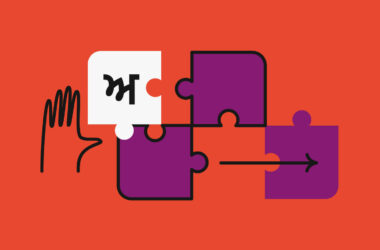A lot of times, people often hide the fact that they have debts. Although having debts isn’t in any way newsworthy, people should be open about it and focus on settling it more than anything else.
Being in debt should not put one in severe restraints. Even if adjustments are inevitable, debt should not entirely disrupt a person’s total financial capability. Being a wise debtor, one has to weigh in from the beginning, about finances and credit score.
Debtors are often met with negativity when they fail to meet due dates even if the reasons for missing a payment is reasonable. As much as people don’t want to be late in paying debts, missing payments do happen. For the responsible and diligent debtor, nothing can be as satisfying as closing a debt.
Here are some tips and tricks for people who wants to settle debt issues correctly:

Stick to the truth
Creditors don’t want to hear all the fine details and exact events surrounding a late payment. They are lending as a business, and business must go on regardless. For the debtor, providing a simple and truthful reason is enough.
In the case of borrowers that owe money to different people, the truth should be of priority. A debtor’s reputation is on the line if they tell lies. Don’t tell other creditors different stories as it may end up being a reason for the debtor to evade payment intentionally. Stick to the truth. Being honest about the cause of a missed payment deserves a tap on the back.
Less dramatics
Debtors should always be less dramatic. Theatrics and teary eyes will not lessen the amount owed to a creditor. If the person on the other line does speak with intensity, debtors should remain as calm as possible.
In cases where people cannot maintain composure, borrowers can ask the person on the other line about having a conversation later and hang up. If a creditor is still aggressive no matter what one does, telling them of the intent of recording the conversation usually helps.
Questions
Asking questions often helps significantly whenever a collector is aggressive and is often persistent in making debtors pay. In cases where threats like “I’ll file a lawsuit if you don’t pay!” are made, gathering information about it is the best thing to do.
Intimidation and threats have no place whatsoever in the Borrower-Lender relationship. Follow up threats with questions because some of them are illegal. The more data you gather, the better.
Notes
Whenever talking to a debtor, always keep a pen and paper nearby. Always record pertinent information regarding the collector. This information should be the name of the collector, date and time of the conversation, and the topics of discussion. If in any way that a debtor feels that the creditor has broken the law, the debtor can at least have information on it.

Saving information
Always keep papers that come from creditors. These documents include notices, due dates, reminders, and agreements. Don’t throw these away as these are important and will be of use in future references.
Careful planning
As mentioned above in the first part of the article, adjustments are inevitable. Borrowers can review income and expenses for them to come up with a better payment plan. Presenting these ideas to a creditor can also be of great help.
Negotiate
Being the first in finding solutions for debt will make a creditor feel that a borrower is responsible for paying the debt. The lines for negotiation must always remain open as multiple solutions can come up at any time.
If unsure, both creditors and borrowers can ask for legal assistance when talking with each other. In the case of persistent hounding or intimidation from collectors, people should opt for bankruptcy lawyers. Even if a lawsuit isn’t in motion, a lawyer can tell clients about the powers that a creditor can have.
Putting it in paper
Debtors and creditors alike should not settle for verbal agreements as these agreements can be met with revisions at any given time. Payment arrangements or letters for debt settlement are an example of these papers. There are severe cases where clients were put to the test against their own words and were made to pay debts which they thought they had already resolved in the past.

Takeaway
All of us at some point will have some debts to pay. Whether it is a bank, a loan creditor or even a loan shark, it pays to be knowledgeable and diligent when situations arise. Simple actions such as remaining calm, taking down notes, and being less dramatic can help.
A lot of times, we hear of stories about weeping and pity when it comes to debts. Whatever the reason is behind that late payment, a debt will remain a debt. In the long run, being courteous as a debtor can help significantly.
If all else fails, negotiation and legal advice are always readily available. Planning better payment schemes, resetting due dates, even fine simple details can be beneficial for both creditor and debtor.







